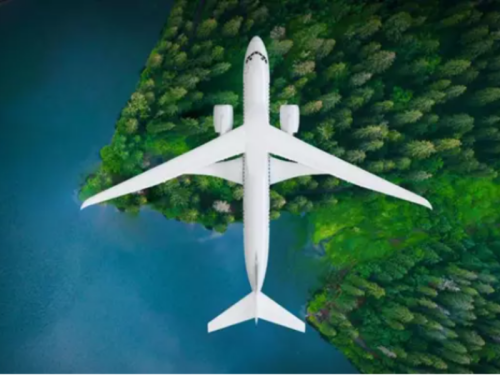Innovative seaplanes for carbon-free travel in the Canary Islands will look like this
.png)
Tenerife-based Surcar Airlines has announced its intention to incorporate hydrogen engines into its seaplanes.
The aviation industry is undergoing a profound process of technological transformation, seeking solutions to drastically reduce pollutant gas emissions, even aiming for their complete elimination. A prime example of this trend is represented by the Canary Islands-based airline Surcar, whose main ambition is to operate its seaplanes exclusively through hydrogen energy, establishing sustainable connections between the various ports of the archipelago.
To realise this vision, Surcar has recently closed a strategic agreement with the British company ZeroAvia, a world leader in the development of hydrogen engines. Surcar's seaplanes will be equipped with the advanced ZA600 propulsion system, with the aim of leading the electrification of aviation in the Canary Islands. This collaborative effort seeks not only to establish an exemplary model but also to inspire and motivate other operators to adopt sustainable practices, thus accelerating the transition to a greener future.
This approach aligns with current European Union targets, which aim to reduce gas emissions by 55% by 2030, and with Spain's National Integrated Energy and Climate Plan, which aims to achieve a completely carbon-neutral transport system by 2050. James Peck, ZeroAvia's director of customer experience, has highlighted the suitability of the Canary Islands to drive zero-emission flights, given the opportunity to replace combustion engines on short-haul inter-island routes.
ZeroAvia recently completed a successful campaign of 10 test flights using the ZA600 engine integrated into a Dornier 228 aircraft in the UK. This innovative powerplant uses hydrogen fuel cells to generate electricity, which in turn drives the propellers and provides the power needed for the aircraft to take off and fly. The UK company is currently in the certification phase for this 600 kW engine, designed for aircraft seating between 9 and 19 passengers, with plans to enter commercial service in the next 2 to 3 years.
A key feature of this hydrogen engine is its versatility, as it can be adapted to various platforms (land, water, etc.). The advantage of using hydrogen cells instead of electric batteries, such as lithium batteries, is the refuelling time. Filling hydrogen tanks is a similar process to refuelling traditional fuels, unlike the potentially time-consuming electric refuelling, which could limit the frequency of daily flights.
Gerardo Morales-Hierro, founder and CEO of Surcar Airlines, underlined the importance of collaboration with ZeroAvia in the fight against climate change, especially in a region where millions of people visit every year. The switch to zero-emission flights will allow a positive contribution to the local community and the environment.
In Spain, Destinus is working on the development of a hypersonic aircraft powered exclusively by hydrogen. Although still in its early stages, they recently presented their latest prototype, Destinus 3, at the Paris Air Show. The drone aims to be the first to fly with a turbine powered by liquid hydrogen and is scheduled to make its first flight in 2024. If successful, it will be the first hydrogen aircraft in history to break the sound barrier.
The afterburner propellant they are developing could reach speeds of up to 2.5 times the speed of sound (3,000 km/h). To achieve their goals, they are investigating a second system that would allow them to reach at least twice the speed, exploring various technological prospects. The ultimate goal is to build commercial aircraft, with the smallest aircraft designed to carry 25 passengers with a range of 10,000 kilometres at a speed of 6,000 km/h. According to Plácido Márquez, executive director of business development at Destinus, this market is in the process of being created as they develop the necessary technology.
References
Así serán los innovadores hidroaviones para viajar en las Islas Canarias; sólo emiten vapor de agua | El español, Retrieved August 17th, 2023 from: https://www.elespanol.com/omicrono/defensa-y-espacio/20230817/innovadores-hidroaviones-viajar-islas-canarias-solo-emiten-vapor-agua/786171385_0.html
ZeroAvia Dornier228 – First Flight | Youtube: ZeroAvia. Retrieved January 19th, 2023 from: https://www.youtube.com/watch?v=cp8MoFaaKy8
